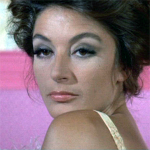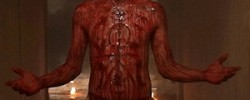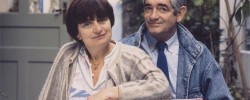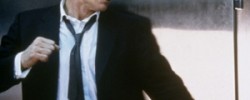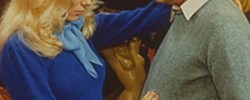
TIFF’s Bitter/Sweet The Joyous Cinema of Jacques Demy Review: Bay of Angels (1963)
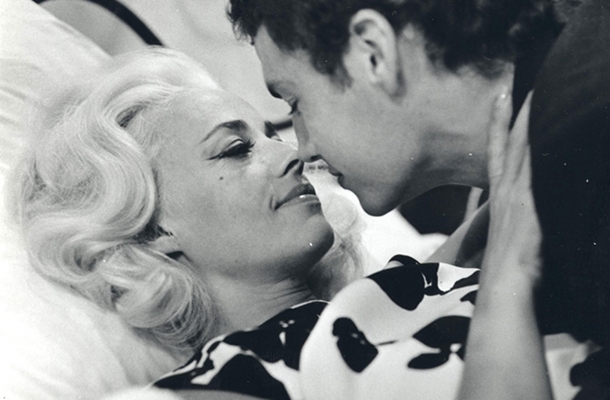
Cast: Jeanne Moreau, Claude Mann, Paul Guers
Director: Jacques Demy
Country: France
Genre: Drama | Romance
Editor’s Notes: The following review is part of our coverage for TIFF’s Bitter/Sweet The Joyous Cinema of Jacques Demy which runs from June 27th to July 20th at TIFF Bell Lightbox. For more information of this unprecedented film series visit http://tiff.net and follow TIFF on Twitter at @TIFF_NET.
Without the music and the mellifluous rainbow of color that is a stamp of a Demy film, the texture of a Jacques Demy film is smooth and sharply cut. Its tones are airy, luminescent, being grounded by tight frames that focus on characters and their interactions. Faces, comportments, and style are augmented this way in a world based on fantasy and fate. While Demy’s contemporaries turned to avant-garde and to the political with the film essay, Demy delighted in character portraiture through fantastical Hollywood flavors.
While Demy’s contemporaries turned to avant-garde and to the political with the film essay, Demy delighted in character portraiture through fantastical Hollywood flavors.

In Bay Of Angels, Claude Mann plays Jean, a naïve banker who’s been introduced to the world of gambling by his friend Caron (Paul Guers). At the roulette tables he meets Jacqui (Jeanne Moreau), a striking platinum blonde gambling addict. She’s washed up: constantly on the verge of poverty, having lost custody of her son, and living day to day at the roulette wheel where she goes from rich to poor and back again at the drop of a hat. Jean becomes obsessed with a cold Jacqui. Jacqui returns his affections eventually, but later admits to using him to get her way.
The film was made in 1963 and is considered the lesser of the Demy films, I guess for its lack of color, whimsy, and music. Moreau utilizes her charms to make Jacqui into an infantile delinquent. While we learn superficially about her, we can sense that Jacqui will ultimately betray Jean. It seems in her nature to do so. Mann is young, tall, and handsome, reminiscent of future black and white Calvin Klein models. There are not many emotional scenes between Moreau and Mann, with the exception of a few passionate fights, but they reveal the true nature of Jacqui’s character. She’s flawed, vulnerable, and beyond the mercies of her whims.
The film was made in 1963 and is considered the lesser of the Demy films, I guess for its lack of color, whimsy, and music.
The film is carried more through its haute couture visuals. High credit is to be given to Raoul Coutard’s cinematography as the film glows with the romance of French provincial life. Moreau and Mann are striking to watch as they fumble through French alleyways and casinos. France becomes a secondary character through the film’s settings, even the bank and the casinos are slick, well manicured, and lush. Moreau and Mann are slight people, but they become glamorous through their surroundings. Simple scenes of them driving a luxury car, going up the winding stairs to their fancy hotel, and just strolling along boulevards were a feast for the eyes, even in black in white. There’s one particular scene where Jean tans at the beach and converses with Jacqui who’s still dressed in a fine white dress. It’s an interesting framed scene having Jean be in control of his life in a bathing suit while Jacqui is so flighty, yet impeccably dressed. The film is very much a character analysis with these contrasts, rather than a cautionary tale on the dangers of gambling.
The soundtrack is vibrant and sweeping, mostly in moments when the roulette wheel is spinning hinting to a chaotic world of chance. A mandolin strums as the lovers go about their carefree days. Bay Of Angels is quite overshadowed by the more colorful films Jacques Demy made after, but it’s a worthy look at his development as a director.
Related Posts
![]()
Jacqueline Valencia
![]()
Latest posts by Jacqueline Valencia (see all)

